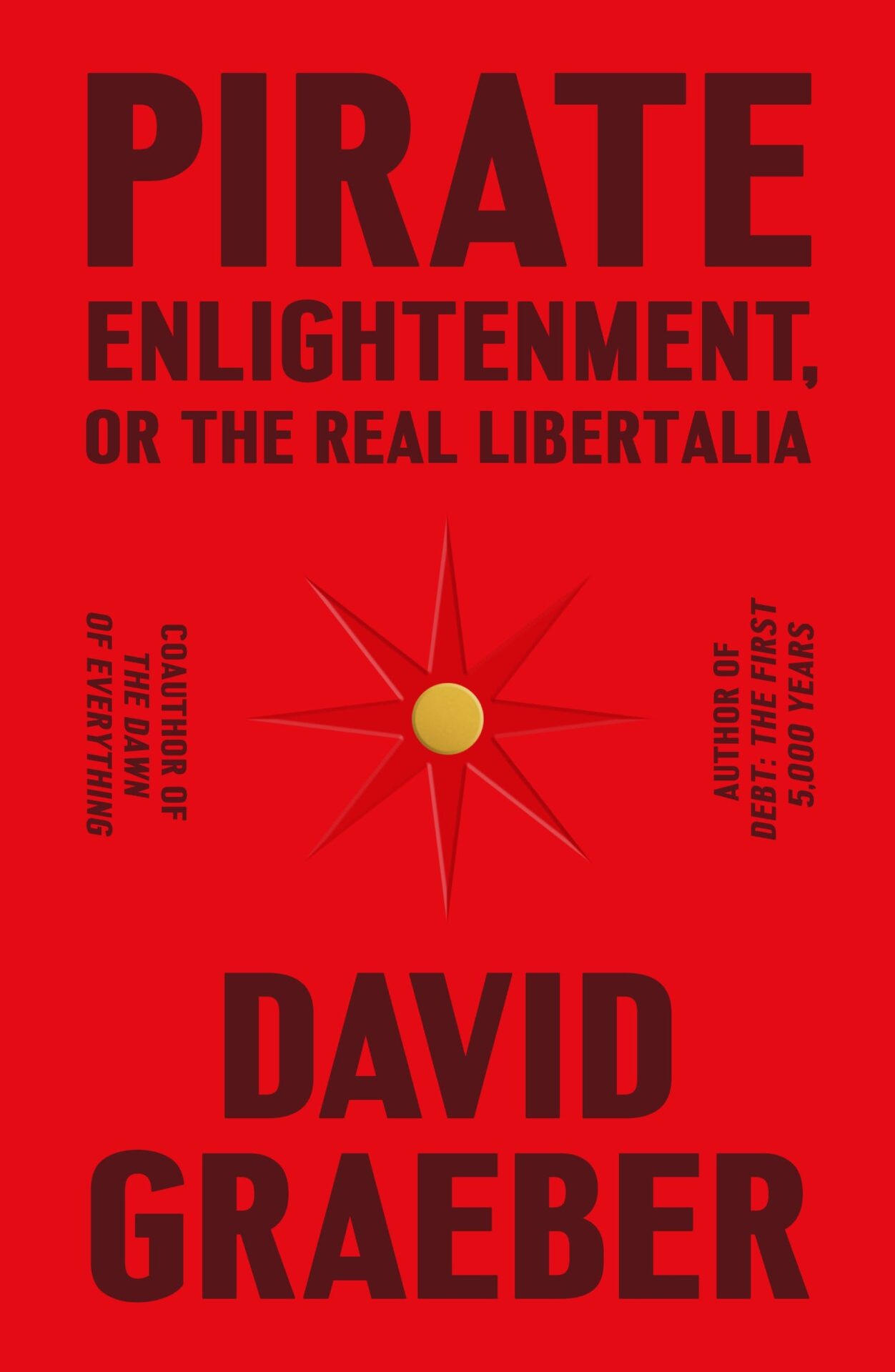David Graeber Argues that the Enlightenment Was Heavily Influenced by Pirates
Observer
The late anthropologist maintains that the pirate culture of Madagascar was a major influence on thinkers like Hobbes and Locke.

In David Graeber’s slim posthumous book, Pirate Enlightenment: Or the Real Libertalia, the anthropologist argues that 18th-century pirate society inspired and influenced European Enlightenment thinking. Specifically, he describes how the pirate “kingdoms” of 18th-century Madagascar brought together the proto-democratic self-government of pirate ships with the uniquely inclusive cultural melting pot of the people of Madagascar (the Malagasy). The historical narratives and folktales about these pirate “kings” made their way to Europe in the time of Hobbes, Locke, and Montesquieu, and maintained a purchase on the minds of writers like Daniel Defoe. As a result, pirate philosophy became mixed up in the profusion of ideas that would come to shape European thought for centuries.
This book continues the project Graeber began, alongside archeologist David Wengerow, in The Dawn of Everything (2021), to “decolonize the Enlightenment,” proving the global and pluralistic non-Western origins of Western thought. In The Dawn of Everything, Graeber and Wengerow write of the indigenous diplomat Kondiaronk, who debated the punitive nature of European law with early French Canadian colonials. These debates were noted down in a book that became a widespread bestseller across Europe in the early 18th century. In Pirate Enlightenment, Graeber turns his attention to another source of early 18th-century pluralistic thought in his research on the mock pirate “kings” of Madagascar.
While doing his graduate field study in Madagascar in the early nineties, Graeber came across an unusual ethnic group, the zana-malata, that could trace its origins to 17th- and 18th-century pirates who had married Malagasy women and lived in vibrant trading towns along the island’s eastern coast. These Malagasy women sought economic independence through marriage to their (frequently absent) foreign pirate husbands. In these mutually beneficial marriages, women gained financial liberty while transforming their pirate husband’s plundered jewels and silks into comfortable domestic lives. As much wealth as the pirates could steal, that wealth could not be translated into a higher status back in their home countries. Madagascar’s pirate port towns were another story.
Graeber describes the pirate “kings” themselves as leaders in name only: able to display the great wealth of a king due to their stolen booty, even while lacking the connections or legitimacy to enforce their authority in daily life. Graeber maintains that these men were also likely influenced by the self-government maintained aboard pirate ships, where the crew elected their captains, where work and booty were shared around, and where a captain only had the right to command others during pitched battle. One such pirate king, Ratsimilaho of the Betsimisaraka Confederation, was an elected king whose kingdom was maintained for 50 years of peace and prosperity in a largely decentralized kingdom at a time when Madagascar was racked with internal strife. Most impressively, the kingdom kept the European slave traders away, even while slavers were actively kidnapping and transporting native Malagasy elsewhere.
This story dovetails with similar research in The Dawn of Everything, which details the broad spectrum of styles of self-government common globally until the modern era. In the distant past, humans were agile and flexible in collectively choosing how we should live. Unchanging top-down hierarchies are a relatively modern invention. We once chose differently, Graeber inveighs, and we must do so again.
Graeber’s work may best be seen not merely as scholarship or as entertaining popular nonfiction, but also as part of an overarching political project that connects with the author’s political organizing at Occupy Wall Street or as part of the debt cancellation movement. Rare are contemporary scholars who would both write a definitive study on the history of debt and organize a movement to rid a generation of student debt. Academics rarely cross that line from scholar to organizer and Graeber claimed that he did so at his peril. He described himself as exiled from American academia following his dismissal from Yale, which he credited to his political advocacy.
Nestling into his theories is easier done once Graeber’s political intentions are understood. He was the child of working class Jewish intellectuals. His mother was a member of the Ladies Garment Workers Union and performed a lead role in the long running pro-union Broadway musical, Pins and Needles. His father was a communist who fought against the fascists in the Spanish Civil War. A lifelong anarchist, Graeber’s political perspective infuses all his work and he rarely tries to hide his distinctly radical analysis.
Graeber states in the preface to Pirate Enlightenment: “If nothing else, what I’d like this little experiment in historical writing to bring home is that existing history is not just deeply flawed and Eurocentric, it’s also unnecessarily tedious and boring.” Where many moralizing scholars will insist upon the diversification of the canon, few entice us towards multiculturalism through joy. He makes the inclusion of figures like Kandiaronk and Madagascar’s Ratsimilaho into the canon of Enlightenment thinkers into a diverting romp. According to Graeber, engaging with history from a radical point of view is not merely more honest and enlightening, it’s also more fun.
“Let us tell, then, a story about magic, lies, sea battles, purloined princesses, slave revolts, manhunts, make-believe kingdoms and fraudulent ambassadors, spies, jewel thieves, poisoners, devil worship, and sexual obsession that lies at the origins of modern freedom.” So begins Pirate Enlightenment. Like a political novel it asks more questions than it answers and it gives heft and architecture to unknown or unknowable worlds. The study of Madagascar’s pirate kings must by necessity be an imaginative act, given how little is known of the period, how much information has been lost, and how hard it is to divide fact from fiction in the narratives shared in the 17th and 18th centuries. Graeber does not exaggerate what he knows but he does draw enough threads together to put forward a few theories. He makes a valiant attempt at describing the different actors in 18th century Madagascar—Malagasy women merchants, mpanjaka (Malagasy princes,) Islamic Gnostics, Jewish ritual cattle slaughterers, colonists, pirates, sorceresses, and slave trading con men—and builds a convincing scholarly parallel to contemporary pirate legends. He writes discursively and conversationally, combining hard research with literary analysis, conjecture, personal anecdotes, and jokes. Using mainly contemporary sources, he brings a shadowy historical backwater to life and sketches out what may well have been a real pirate utopia.
Readers of Graeber learn to leap into his jeweled nests of ideas without any expectation of emerging with certainty about any of them. He is a little like the James Cameron of anthropologists: engaging in occasionally crude or unfinished techniques in a self-conscious attempt to shatter paradigms and build a new world. His works are flawed not because he chose scholarly shortcuts or began on false premises, but because he is trying to do something incredibly difficult, if not impossible, and something very definitely new.
Graeber died at 59, with his career in full swing. Reading his work now is to be reminded of his passing and of the books he wasn’t given the time to write. His final book is a reminder of his bravery, bombast, and brilliance, and his ability to create vast, imagined worlds from sparse resources—not unlike the pirate kings his last work commemorates.


